Exon Skipping
Delivery of the peptide nucleic acids into the cell is
the key to successful development of this type of drugs.
Delivery of the peptide nucleic
acids into the cell is the key to successful
development of this type of drugs.
Gene and Protein
DNA carries genetic information allowing life to persist generation to generation. Inside the nucleus, the genetic information encoded in DNA is transcribed or copied into pre-mRNA. Pre-mRNA, composed of exons and introns, remove introns through a process called “RNA Splicing” to produce mRNA consisting of only exons. mRNA is then released into the cytosol to play the destined role to express protein according to the genetic information encoded on mRNA. The physiological function of the protein maintains or regulates the phenotype of a living organism.

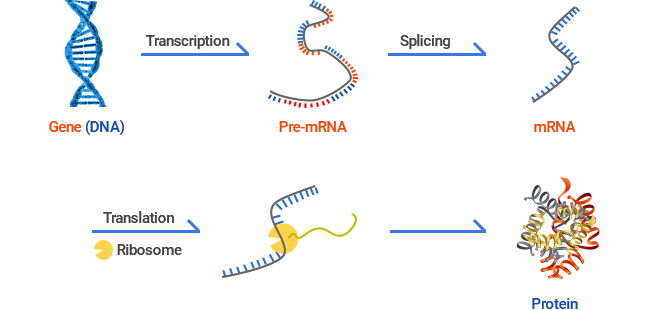
Splicing
Inside the cell nucleus, the precursor of mRNA (pre-mRNA) composed of introns and exons undergoes through a splicing process where introns are removed and only exons are joined together form a mature mRNA. Splicing is a series of complex biochemical catalytic reactions mediated by a "Spliceosome Complex" in which a number of proteins and ribonucleic acid proteins are bound to the intron/exon junctions. In most cases, the length of the pre-mRNA is at least 10 times the length of the mRNA, and the length of the intron is much longer than the length of the exon. With many introns in the pre-mRNA, multiple splicing happens simultaneously.
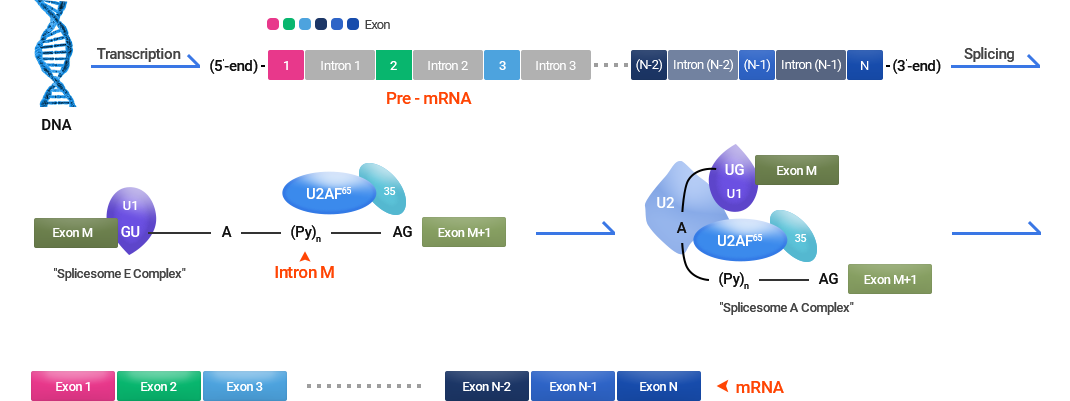
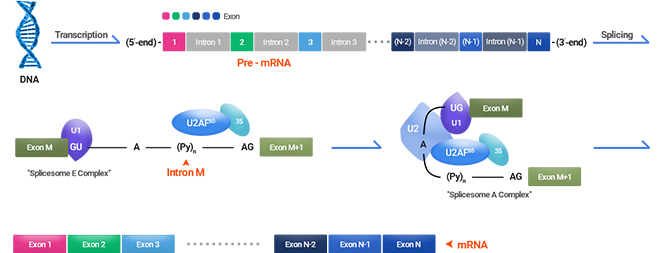
Exon Skipping
During splicing, spliceosome complex is formed at the introns of the pre-mRNA. If an artificial nucleic acid is strongly bound to a specific site of the pre-mRNA where spliceosome complex is formed, splicing may not proceed properly. This inhibition of spliceosome complex formation results in mRNA lacking the relevant exon. This phenomenon is called Exon Skipping.
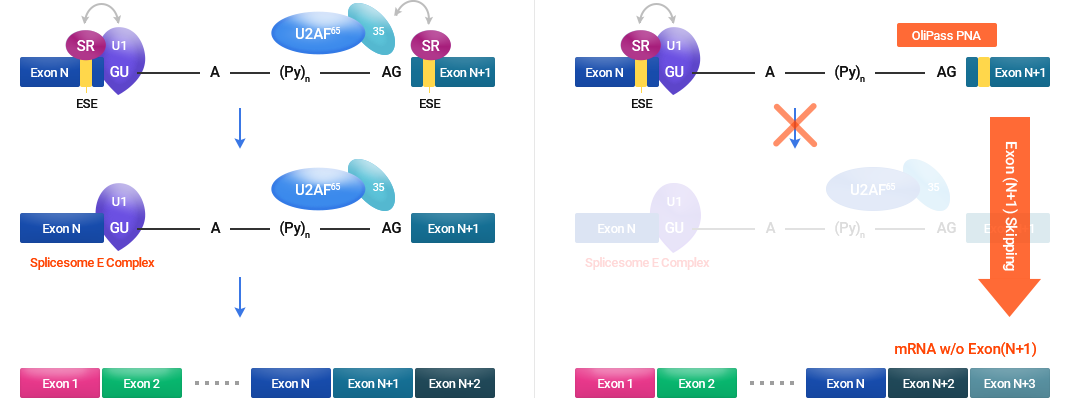
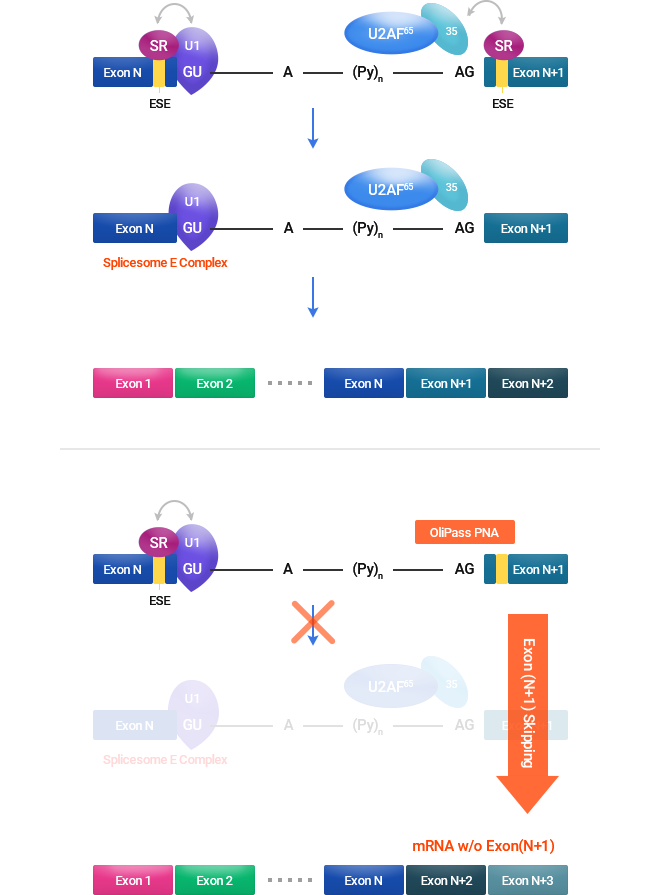
Antisense Therapy and Exon Skipping
When an artificial nucleic acid cause exon skipping of a specific pre-mRNA, a shorter mRNA variant is produced. Such mRNA variants express proteins lacking the physiological function of the original protein. In many cases, inducing exon skipping results in the inhibition of a specific protein production. If the protein is known for its disease-causing activity, artificial nucleic acids therapy that mediates exon skipping should be developed as a treatment. Since artificial nucleic acid specifically binds to the target region of the pre-mRNA to induce exon skipping, it can be developed as a safe and efficacious therapeutic. However since exon skipping occurs inside the cell nucleus, delivery of the artificial nucleic acids into the cell is the key to successful development of this type of drug.